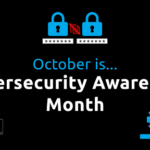
Before we delve deeper into server security, you might want to review the steps we’ve gone over so far in our process for making sure your IT infrastructure is safe. If you’re new to this series or would like to go over a previous step, here they are in order.
1. Performing a security audit
2. Creating and enforcing IT security policies
3. Updating your anti-virus solution
4. Updating workstations and servers
5. Guarding your email with a hosted spam solution
6. Implementing a hosted DNS solution
8. Implementing a backup solution
IT infrastructure security audit: The importance of server security
Servers are computers or programs that manage access to a central resource or service in your network. If you want to protect your business from security risks while also achieving minimal downtime and operating as efficiently as possible, proper server support and network security are crucial.
As part of your efforts to make sure your overall IT infrastructure is as safe as possible from data breaches and cyberattacks, you’ll want to carry out an audit of your servers, similar to how your organization performed a general security audit at the beginning of this process. You’ll need to establish your current level of server security, identify any vulnerabilities, and create an action plan for fixing those weaknesses.
What does auditing the servers truly mean? Consider when you last reviewed the following:
- User database
- File folder share permissions
- Password policies
- Updates
- Local firewall
- Virus protection
You’ll want to go over these aspects and more as part of the IT security audit process.
Cloud server concerns
If you have cloud-based servers, don’t make the mistake of thinking that you don’t have to worry about information security. Just because the cloud is involved doesn’t mean your servers won’t have vulnerabilities that could open you up to data breaches and cyberattacks.
Although public and private clouds are generally secure, you’ll always take on a certain level of risk when it comes to an environment your company doesn’t own. Make sure that you trust your cloud service providers and check to ensure that they have implemented strong security policies. Additionally, if you need to comply with any industry regulations (e.g., HIPAA), it’s important to make sure that cloud computing providers operate in line with those requirements.
Once you’ve audited your servers, you’ll be one step closer to having achieved an optimal level of IT infrastructure security. If you’d like to learn more about how to manage risk related to your servers and how to secure IT infrastructure overall, our trusted advisors can connect you with leading managed cybersecurity service providers in our partner network.
Get started today by calling 877-599-3999 or emailing sales@stratospherenetworks.com to schedule a consultation.


